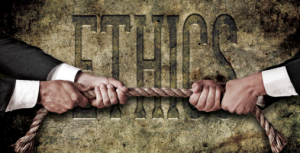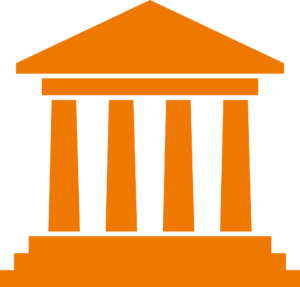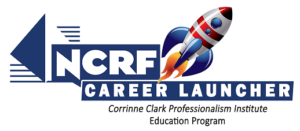 It is difficult to think about either ethics or professionalism without running into the other. The two ideas overlap and influence each other in both thought and practice. Ethics at its simplest is what is right or wrong, good or bad. Merriam-Webster defines ethics as “the principles of conduct governing an individual or a group.” Our ethics determine the choices we make. Professionalism, to me, is the carrying out of the choice our code of ethics tells us is best; it is the quality of our profession as shown by our work, what we do, and what we produce. Our moral code is either reinforced or shaped and molded differently when we see the effects of our actions, the effects of our professionalism.
It is difficult to think about either ethics or professionalism without running into the other. The two ideas overlap and influence each other in both thought and practice. Ethics at its simplest is what is right or wrong, good or bad. Merriam-Webster defines ethics as “the principles of conduct governing an individual or a group.” Our ethics determine the choices we make. Professionalism, to me, is the carrying out of the choice our code of ethics tells us is best; it is the quality of our profession as shown by our work, what we do, and what we produce. Our moral code is either reinforced or shaped and molded differently when we see the effects of our actions, the effects of our professionalism.
Ethics and professionalism are the skeletal and muscular systems that support and carry out our actions and choices. When our ethical base is firm and we consistently act upon our moral principles, we develop integrity in our business practices. In court reporting specifically, we develop fairness, impartiality, and truthfulness. It means we produce accurate transcripts, are open about conflicts of interest, are neutral to each side, and know our limits when accepting and giving gifts. These qualities are witnessed by those we interact with in our work, and they can then place trust and esteem in us. I believe every action of every reporter is woven together to create the image of our profession; so, the ethics and professionalism of each reporter matter.
I come from an industry suffering an identity crisis triggered by an insufficiency of professionalism and ethics. As a journalism student at the University of North Texas, I remember clearly my enthusiasm for facing the challenge of joining a field, learning by trial and error how to adapt to the changing times. But in my senior year I began to realize that the basic struggle of journalism couldn’t be attributed to the times or to technology. The problem was one of trust. A Gallup poll from September 29, 2010, shows that 57 percent of Americans’ trust in the media is “not very much/none at all.”
The integrity and professionalism of journalists has been seriously depreciated by inaccurate and biased reporting and by not remaining fair and impartial. People stopped believing that ethics were a tenet of journalism, and this has crippled the profession. This failure of an industry that I aspired to and held certain trust in myself has underscored to me the value of a professional image that is built upon a firm foundation of ethics.
Though court reporting and journalism generally maintain very different standards and goals, one vital shared principle is that demand for commitment to a code of ethics. The ethical decisions we make as court reporters affect the quality of our work and the quality of our work relationships. These, in turn, affect the future of the court reporting profession. If attorneys, judges, and the public — our three most important relations — cannot trust our work or us to be fair and truthful, support and then demand for us will decline.
These principles are no less important while preparing to be a court reporter. Rules are created in schools not just to keep students from cheating, but to begin developing that ethical base they will need in order to maintain the court reporting profession at its current, high standard. It does take time and practice to build a code of ethics. Students should begin studying the NCRA Code of Professional Ethics early on. Understanding expectations and specifics of how professionalism in court reporting plays out is the first step to developing ethics.
Having had a personal view of journalism’s failure of ethics and professionalism, I have gained focus on the importance of these concepts. They are the foundation and support of any profession. They guide our choices as court reporters, strengthen our relationships, and ensure both the quality and future of our work.
Jayda Spires is a court reporting student at Alvin Community College in Texas. She won first place in the 2013 CASE scholarship for this essay.
Works Cited
1. Morales, Lymari, “Distrust in U.S. Media Edges Up to Record High,” Gallup. September 29, 2010. http://www.gallup.com/poll/143267/distrust-media-edges-record-high.aspx. March 29, 2013.
2. “ethic.” Merriam-Webster. com. Merriam-Webster, 2013. http://www.merriamwebster.com/dictionary/ethic?show=O&t=l364631804. March 29, 2013.










